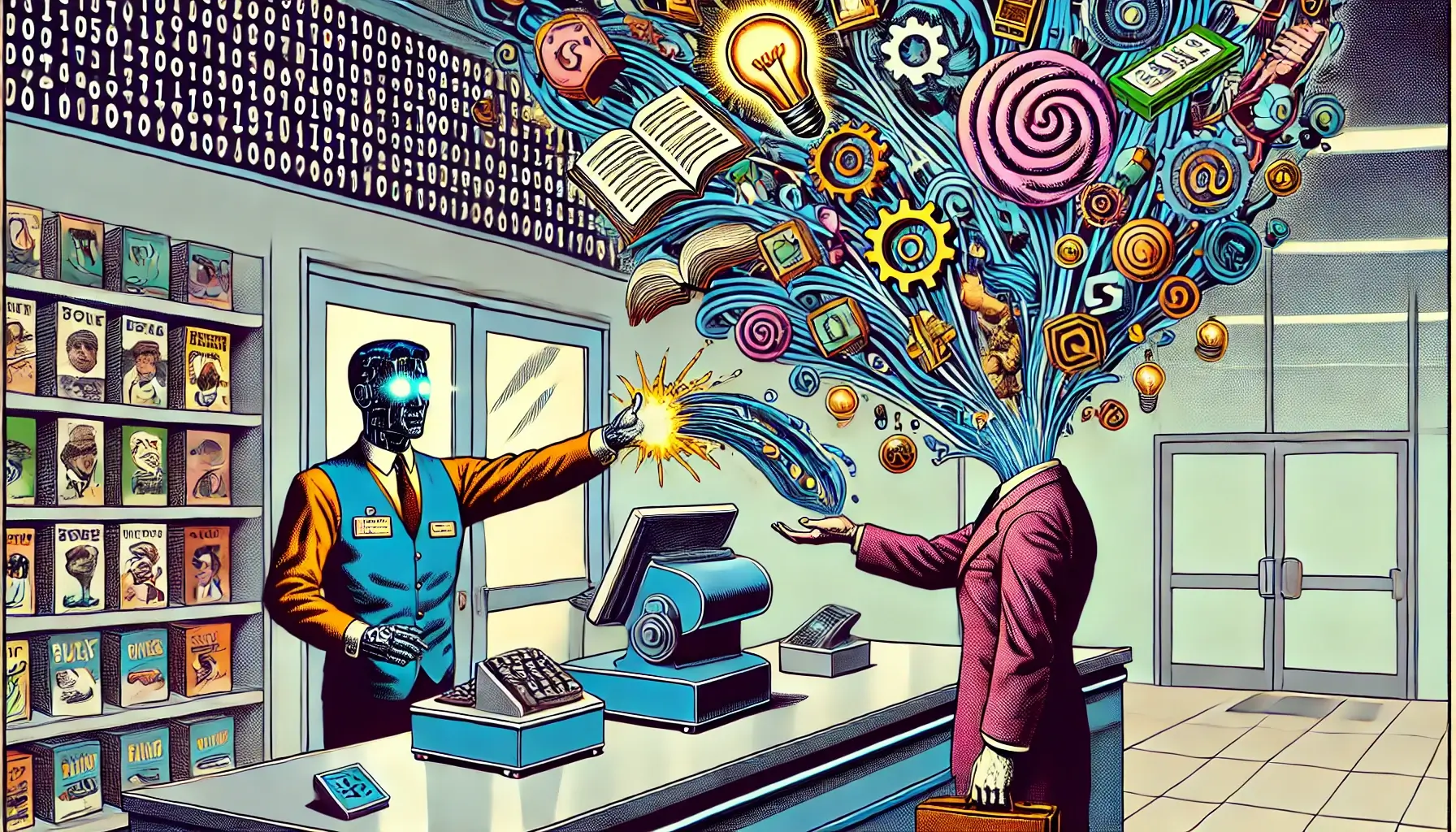The True Cost of “Free” Content in the Attention Economy

The Illusion of the Attention Economy
The true cost of free content is something you can’t even buy. The public perception of the attention economy is clear: you pay with your time and attention to consume “free” content funded by advertisers or sponsors. This concept, though widely accepted, is misleading. You don’t just pay with time or attention—you pay with your ability to think.
Most people have unknowingly handed over their thought-processing ability. The attention economy doesn’t just demand your focus; it actively replaces your ability to engage in active, critical thinking with passive consumption. This is not just a byproduct of the system—it is its design.
How Thought Processing Has Been Replaced
Active thinking requires effort. It demands focus, reflection, and critical engagement with the world. Yet today, this ability has been atrophied by tech addiction and the instant gratification provided by digital platforms. The attention economy feeds off this atrophy, ensuring that you consume content passively instead of processing your own ideas.
Instead of fostering independent thought, platforms encourage you to scroll, react, and move on. This transactional design prioritizes your engagement over your mental engagement. As a result, critical thinking is no longer simply diminished—it is systematically replaced with passive consumption.
The Punishment for Independent Thinking Is The True Cost of Free Content
If you attempt to hold onto your ability to think independently, the system retaliates. The attention economy punishes dissenters in two key ways:
- You Are Starved of Attention
Algorithms deprioritize creators and thinkers who challenge dominant narratives or encourage deeper engagement. If you produce content that requires thought or reflection, the system ensures it remains unseen. - You Are Targeted by Hostility
Platforms amplify polarization and negativity, turning trolls and hostile interactions into weapons against dissenters. If you think critically or encourage others to do so, you will be met with backlash designed to silence you and discourage your efforts.
Those who retain their independence of thought experience isolation, hostility, and exhaustion. The system is designed to treat independent thinkers as threats, not participants.
The Nihilistic Toxin of Meaninglessness Must Be Addressed
The erosion of thought has given rise to a deeper cultural problem: meaninglessness. The attention economy creates the illusion of progress with its constant churn of “breaking news” and viral trends, but it masks a stagnation that pervades society. Nothing truly changes—only the packaging of the same stories, scandals, and arguments.
Meanwhile, you are sold the illusion that you are thinking for yourself. Social media platforms encourage you to express your individuality, but your ideas are curated and constrained by algorithms and trends. What feels like autonomy is actually compliance, leaving you trapped in passivity and nihilism.
How the Attention Economy Keeps Us Stuck
The attention economy perpetuates a state of stagnation. While it appears as though things are advancing, the system is designed to keep you in place. “Breaking news” no longer signifies urgency—it signifies the endless recycling of shallow narratives.
- Politics: Politicians recycle empty promises and shallow culture wars to maintain appearances without meaningful action.
- Media: Outlets prioritize sensationalism and surface-level engagement over depth and insight.
- Technology: Innovations prioritize profit and attention capture over solving meaningful problems.
This system ensures that you remain stuck while it profits from your inability to think critically or demand change.
Why Thinking Feels Painful
Active thinking is not just effortful; it is painful in a system designed to discourage it. Resisting the attention economy’s pull comes at a cost. You face isolation, hostility, and fatigue for refusing to conform.
This pain, however, is necessary. It is the discomfort of reclaiming your autonomy and breaking free from a system that profits from your passivity. Though difficult, this resistance is essential to reclaim your ability to think critically and meaningfully engage with the world.
Reclaiming Your Thought-Processing Ability
Escaping the attention economy is possible but requires conscious effort. Here are steps to reclaim your thinking ability:
- Engage with Depth
Prioritize content that challenges your assumptions and encourages critical reflection. - Resist Performative Thinking
Question whether your thoughts and actions are truly your own or shaped by external validation. - Support Independent Thinkers
Amplify voices that prioritize substance and critical engagement over spectacle. - Redefine Success
Value the impact of ideas and meaningful conversations over metrics like likes, views, or shares.
Buy Back Your Thought Processing
The attention economy demands more than your time and attention. It demands your thought-processing ability, replacing active thinking with passive consumption. It leaves you stuck in a cycle of meaninglessness, where nothing changes, and genuine progress is out of reach.
To break free, you must resist the pull of this system. Reclaim your ability to think, challenge the narratives you’re fed, and engage with the world on your terms. True progress begins when you refuse to conform and choose to think for yourself. The choice is yours: stay trapped in passivity or reclaim your autonomy and push for something better.
